
.png&q=95&w=400)
Why a HELOC is a Smart Choice for Homeowners Looking to Consolidate Debt
Key Takeaways:
-
A HELOC can be a smart choice for homeowners looking to consolidate debt because it typically offers a lower interest rate. This makes paying off the loan easier, as the monthly payments are lower.
-
Benefits of using a HELOC to consolidate debt include: lower interest rate, payment flexibility, one streamlined monthly payment to one lender (instead of several), and improved credit score.
-
Disadvantages of using a HELOC for debt consolidation include: risk of increasing debt if not used properly and risk of foreclosing on your home if not paid according to loan terms.
What is a home equity line of credit (HELOC)?
Some debt can be a useful tool in helping us to achieve our goals but high-interest debt can become a burden if we don’t take steps to manage it properly. A Home Equity Line of Credit (HELOC) is a great tool to provide a way to effectively manage existing debt and make other large purchases more feasible.
A HELOC is a type of loan that uses your home as collateral. This means you can get access to a larger sum of money at a lower interest rate than other types of loans because it is a secured loan. The amount of the loan is based on the value of your home and how much equity you have in it.
A HELOC can be a smart choice for homeowners looking to consolidate debt because it offers a lower interest rate in comparison to other forms of debt consolidation. Unsecured debt, such as balance transfer credit cards, debt consolidation loans, and personal loans often come with steep, variable interest rates making payments larger and less predictable. Having one, low-interest monthly payment makes paying off the loan easier, as the monthly payments are lower.
Is using a HELOC to consolidate debt a good idea?
Debt consolidation can be a great way to simplify and manage your finances. Understanding all options before deciding how best to tackle your debt. A home equity line of credit (HELOC) is a good option for homeowners to consider in order to consolidate high-interest debt.
Taking out a HELOC will give you access to funds that can be used for debt consolidation, and potential benefits include lower interest rates, shorter loan terms, and the possibility of tax deductions (depending on how you use it).
Pros of using a HELOC to consolidate debt
-
Lower interest rates: One of the main benefits of using a HELOC for debt consolidation is that you can usually get a lower interest rate compared to other forms of unsecured debt. This means that your monthly payments will be more manageable and you could potentially save money in the long run. With lower minimum monthly payments, you can pay more towards your principal balance, meaning you can pay off your total debt load sooner than without consolidating or by using higher-interest options.
-
Reduced number of monthly payments: Making payments on multiple credit cards or loans can be a real hassle, especially when it comes to remembering what’s due each month and making sure nothing slips through the cracks. Fortunately, you can make things much simpler for yourself by consolidating all of your debt into one Home Equity Line of Credit (HELOC) payment. This way, you’ll only have to keep track of one monthly payment. Plus, if you sign up for automatic payments from your checking account, at least the minimum amount is always taken care of and you won’t have to worry about any late fees or penalties either.
-
Payment flexibility: Typically a HELOC has an initial draw period of several years, in which you can withdraw cash up to a certain limit and only have to pay interest on the balance. This is followed by a repayment period during which you make payments on interest and the loan balance. If you're able to make extra principal payments during the draw period, you will have increased flexibility in how long it takes to pay off your debts. For example, if you receive a bonus from work or cash from your tax returns, you can increase your payment toward the principal loan balance to reduce the total amount of interest you pay to get out of debt sooner. However, you aren't tied to large monthly payments. Being in control of when and how to make your principal payments puts you in the driver's seat of paying off your debts.
-
Improved credit profile: Having high credit card balances and multiple types of loans relative to your limits could damage your credit score. Transferring the debt from your credit cards, student loans, and personal debt into a home equity line of credit (HELOC) may be able to help you improve your credit. As your HELOC balance reduces each month so does the amount reported to improve your utilization ratio; consequently boosting your overall credit score over time. Using a HELOC to consolidate debts into one single manageable loan can strengthen your financial standing over time.
Cons of using a HELOC to consolidate debt
Using a home equity line of credit (HELOC) to pay off credit cards can seem like an attractive way to get out of debt, as long as you understand that it comes with some risks. One of the disadvantages is that, if you’re not careful, you might end up digging yourself into an even deeper financial hole. In addition to making minimum monthly payments on a HELOC, you will need to practice responsible money management. That means curbing any spending habits that got you into debt so that you don't find yourself in an even worse situation than before.
Another concern when using a HELOC for debt consolidation is that it's a secured debt which means that the lender has the right to take whatever you put down as collateral if you don't pay it off. In the case of a HELOC, this collateral is your home. This means that failing to pay back the principal in the given period can put your house in risk of foreclosure.
Bottom Line
If you find yourself under the cloud of (what feels like) insurmountable debt, a HELOC can be a good idea for debt consolidation to help you reach your financial goals. With a HELOC, you can pay off debts that you have acquired from various sources separately, such as credit cards, car loans, student loans, and more, by taking out one large loan against the amount of equity you have in your home.
A HELOC allows borrowers to save money in interest and consolidate payments into one convenient monthly payment. This type of consolidation is especially useful for borrowers who are struggling to make multiple high-interest payments each month but want to free up their finances by consolidating these debts under one lower-interest loan instead.
Have questions? Give us a call at 888-616-9885—we’re here to help.
Click here to see how our Digital HELOC works and take the first step toward financial freedom.
Fixed Rate Mortgage vs Adjustable-Rate Mortgage (ARM): What’s the Difference and Which Should You Choose?

Fixed Rate Mortgage vs Adjustable-Rate Mortgage: What’s the Difference and Which Should You Choose?
When it comes to financing a home, one of the most important decisions you’ll make is choosing between a Fixed Rate Mortgage and an Adjustable Rate Mortgage (ARM). Both loan types come with unique benefits, and the right choice depends on your goals, financial situation, and how long you plan to stay in your home.
Let’s break down the key differences and help you figure out which might be the better fit.
What is a Fixed Rate Mortgage?
A Fixed Rate Mortgage is exactly what it sounds like: a loan with an interest rate that stays the same for the entire term of the loan. Whether you choose a 15-year or 30-year term, your monthly principal and interest payments remain consistent, which makes budgeting easier and offers long-term peace of mind.
Benefits of a Fixed Rate Mortgage:
-
Predictability: Your interest rate and monthly payment never change.
-
Stability: Great for those planning to stay in their home long-term.
-
Simplicity: Easier to understand terms and paperwork.
-
Peace of mind: Protected from market fluctuations and rising rates.
With a Fixed Rate Mortgage, you’re locking in today’s rate for the life of your loan – and in a rising rate environment, that could mean significant savings over time.
What is an Adjustable-Rate Mortgage (ARM)?
An Adjustable-Rate Mortgage (ARM) typically offers a lower starting interest rate than a fixed rate loan, saving you thousands during the initial fixed-rate period. After that initial term, the interest rate adjusts periodically based on market conditions.
ARMs are often written as 3/1, 5/1, 7/1, or 10/1, where the first number represents the length of the fixed-rate period in years, and the second number tells you how often the rate can adjust afterward (usually once a year).
Benefits of an ARM:
-
Lower initial rates – some of the lowest we offer.
-
Big savings upfront – potentially thousands less than a fixed rate loan.
-
Flexible options – ideal if you plan to move or refinance in 5, 7, or 10 years.
-
Lower initial payments – free up cash flow for other goals or debt.
If you're expecting a higher income, planning a move, or just want to lower your payment in the short term, an ARM could be the smart move.
What Happens When the Rate Adjusts?
Once the fixed period ends, the interest rate adjusts at regular intervals. But don’t worry – rate caps are built in to limit how much your rate can change each year and over the life of the loan, offering some protection from major jumps.
Which Loan Is Right for You?
Here’s a quick way to decide:
Choose a Fixed Rate Mortgage if:
-
You’re planning to stay in your home for a long time.
-
You want consistent monthly payments.
-
You’re buying in a rising rate environment and want to lock in your rate.
Choose an ARM if:
-
You plan to sell or refinance in the next 5–10 years.
-
You want the lowest possible rate right now.
-
You’re comfortable with the potential for rate changes later on.
Why Work With Us?
Whether you're leaning toward a fixed rate or ARM, we’re here to help. Our -licensed Loan Officers will work with you one-on-one to understand your goals and match you with the right loan program.
-
Timely closings – typically in 30 days or less
-
Direct lender – quick answers and personalized guidance
-
FHA ARMs available
-
Down payments as low as 3% (FHA) or 5% conventional
Let’s Find the Right Mortgage for You
Still unsure which mortgage is best for your situation? Let’s talk it through! We’ll walk you through your options, run the numbers, and help you feel confident in your decision. Contact us today to get started or get pre-approved. 888-616-9885
.png&q=95&w=400)
Achieve Your Homeownership Dreams with an FHA Loan
Buying a home is a significant milestone, and for many, securing the right financing can make all the difference. If you're a first-time homebuyer or someone with less-than-perfect credit, an FHA loan might be the perfect solution. Backed by the Federal Housing Administration, FHA loans provide an accessible path to homeownership with lower down payments and flexible qualification requirements.
What is the Federal Housing Administration (FHA)?
The Federal Housing Administration (FHA) is a government entity that insures mortgage loans issued by FHA-approved lenders. This insurance minimizes risk for lenders, making it easier for borrowers to qualify for a home loan. Since its inception in 1934, the FHA has played a crucial role in improving access to home financing, particularly during economic downturns. Unlike other government programs, the FHA operates without taxpayer funding, relying on its own revenue to provide mortgage insurance.
What Are FHA Loans?
FHA loans are government-backed mortgages designed to help buyers secure financing with lower credit scores and smaller down payments. These loans provide an excellent alternative to conventional mortgages, particularly for those struggling to meet stricter credit and income requirements. FHA loans can be used for purchasing single-family homes, multifamily properties, refinances, and even renovation projects.
Key Benefits of FHA Loans:
-
Low Down Payment: Qualify with as little as 3.5% down.
-
Flexible Credit Requirements: Borrowers with lower credit scores have a better chance of approval.
-
Government-Backed Security: Because FHA loans are insured, lenders are more willing to approve applications.
-
Variety of Loan Options: FHA financing extends beyond traditional home purchases, offering refinancing, renovation, energy-efficient mortgages and even reverse mortgage options.
Why Choose an FHA Loan?
FHA loans not only help individuals achieve homeownership, but they stimulate economic development in the form of expanding tax bases and creating jobs. FHA loans were initially created to address housing market challenges, and they continue to play a vital role in stabilizing homeownership rates.
Get Pre-Qualified for an FHA Loan Today!
Now is the perfect time to explore the benefits of FHA financing. With low down payments, competitive rates, and a simplified approval process, homeownership may be closer than you think. Our experienced loan professionals are here to guide you every step of the way.
The Bottom Line
If you're looking for a mortgage option that offers affordability, flexibility, and accessibility, an FHA loan could be the right choice for you. Whether you’re buying your first home, refinancing, or investing in a renovation project, FHA-backed financing provides the security and support you need.
Get started today by getting pre-approved and take the next step toward owning your dream home!
888.616.9885
.png&q=95&w=400)
With the FHA 203K, you have options
Most mortgage loan programs require a property to be in sound condition with no structural defects or required repairs.
Not the FHA 203k. It's made for homes needing anything from a light spruce up to major repairs, improvements or new additions.
Combine Purchase and Improvements:
The 203k loan covers your purchase price and the cost of improvements. The proposed work must be supported by a "value upon completion" appraisal. You can save by financing renovation costs into the original mortgage rather than racking up credit card bills or dipping into reserve savings later.
Create the Perfect House:
If you're having trouble finding the right house in the right location, the 203k is the perfect solution. Just take a well located home, add your own personalization and improvements, and make it "just right."
Determine Your Eligibility:
As with the regular FHA program, credit requirements vary yet can be more flexible than with conventional financing. There are no income limits or first time buyer status requirements.
Minimize Out of Pocket Costs:
The 203k can be obtained with as little as a 3.5% down payment. Gifts can be used, sellers can contribute toward closing or costs can be rolled into the loan amount right along with your pre-paid taxes and insurance.
Applying for the 203k requires more work than other loans, but given all the advantages, it is a great option to consider. If you want to learn more, reach out, and we'll work together to get you started today.

If you're shopping for your first home loan, you've come to the right place. Here's a quick primer to explain types of purchase loans and the programs you can use to access them. Some of the programs can be particularly helpful for first time homebuyers, especially if you haven't yet built a strong credit history or large savings account.
The right mortgage loan program can get you into a home faster and help you optimize your home investment. Here’s information on popular first time homebuyer options.
When you compare loan programs, consider:
-
Purpose (purchase, purchase and rehab, or construction)
-
Requirements (including down payment amounts, income and credit scores)
-
Allowances (such as non-resident co-signers or gifts toward down payment)
-
Sponsors (government agency or private)
Purchase Loans
With a purchase loan, you enter a contract to purchase an existing home and complete an application for a mortgage. As your lender, we will go through the process of verifying your income, assets and credit, while also confirming the value of the home through an appraisal.The money is transferred to the seller at closing.
Construction Loans
As the name suggests, a construction loan funds a home that has not yet been completed. After all permits and contracts are approved, we will advance money to the home builder on a set schedule, following each step of the construction process. After the home is completed, you will pay off a simple construction loan by refinancing it to a regular mortgage loan. Construction-to-permanent loans make this transition automatically.
Purchase & Rehab Loans
These loan programs provide funds for both the purchase of the property and costs for repairs, upgrades or expansion. The property’s value is appraised based on the planned improvements.
VA Home Loans 
VA loans are a special type of home mortgage reserved for active military members and veterans. These home loans are guaranteed by the U.S. Department of Veterans Affairs and offered by participating approved lenders. VA loans allow eligible veterans and active military personnel to realize their home buying dreams and help existing VA homeowners with money-saving refinance options.
Purpose:
-
Purchase or Construction
Requirements:
- Available only to veterans or active-duty members of the U.S. Armed Forces
- High safety standards for purchased property (such as no peeling paint or missing handrails)
Benefits*:
- $0 down payment
- No monthly mortgage insurance
- Flexibility in qualification (credit scores, cash-on-hand)
- Higher maximum loan amounts
- Higher debt to income ratios
*Benefits vary based on service history and eligibility.
Allowances:
- Financing available for eligible closing costs
- Can be assumed by another approved veteran. In this scenario, the buyer takes over the existing loan from the seller, accepting the same terms and paying the difference between the loan balance and the purchase price. The difference can be financed with a second loan.
Sponsor:
-
U.S. Department of Veterans Affairs (VA)
USDA Home Loans 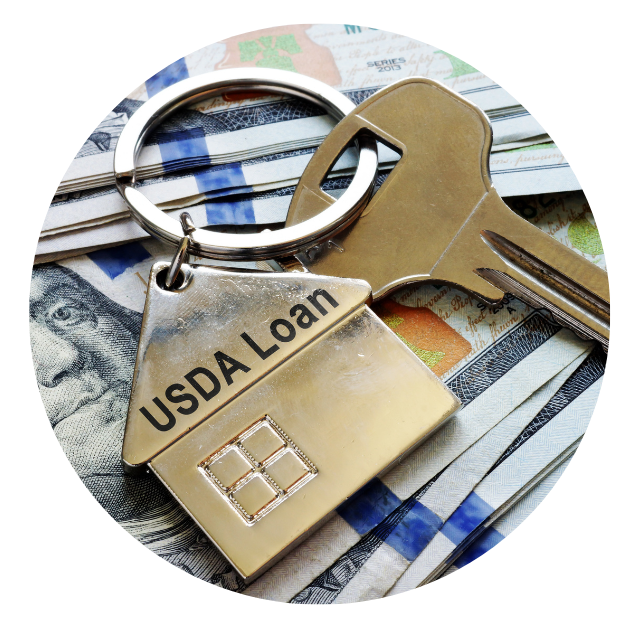
USDA loans are designed to encourage rural land development and growth in rural areas. They were long thought of as just for farmers, but the program has been expanded in recent years to give more people looking to purchase or refinance in a rural area access to the incredible benefits offered by these loans.
Purpose:
-
Purchase, Purchase and Rehab, Construction
Requirements:
- Must fall in an area designated as “rural” by the USDA, as shown in this property eligibility map
- Maximum loan limits dependent on area
- Owner-occupancy required
- Cannot be income-producing
- Income up to 115% of the area median income
Benefits:
- $0 down payment
- Flexible credit eligibility
- Reduced mortgage insurance
Allowances:
- Financing available for eligible closing costs
- Gift money, grant money and seller contributions allowed
Sponsor:
-
United States Department of Agriculture (USDA)
FHA Home Loans 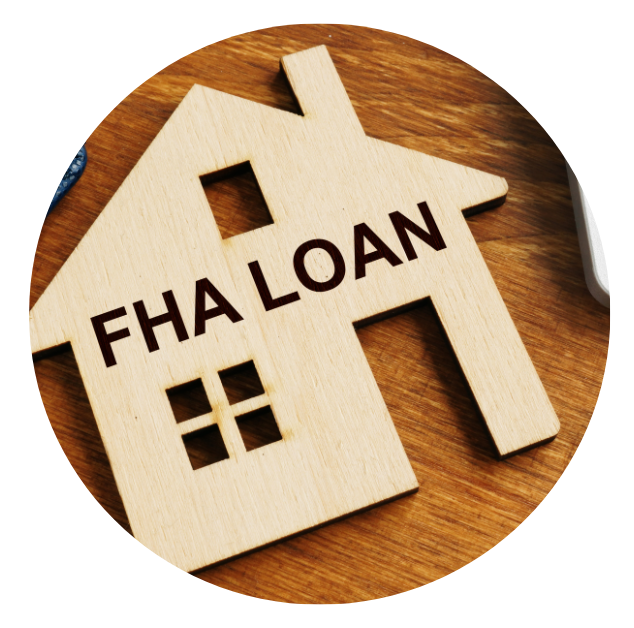
FHA loans are insured by the Federal Housing Administration. These loans are designed to help first-time homebuyers and experienced homeowners alike by providing them with a low down payment option. FHA mortgage insurance serves as protection for lenders in the event of a homeowner defaulting on their home loan.
Purpose:
-
Purchase or Purchase and Rehab (FHA 203K Program)
Requirements:
- Mortgage insurance required for life of loan
- Maximum loan limits dependent on area
Benefits:
- Credit and qualification flexibility
- 3.5% down payment
- Higher maximum loan amounts than Federal Housing Finance Authority (FHFA) conforming limits in some areas
Allowances:
-
Seller contributions and gift money allowed
Sponsor:
-
Federal Housing Administration (FHA)
Conventional Home Loans 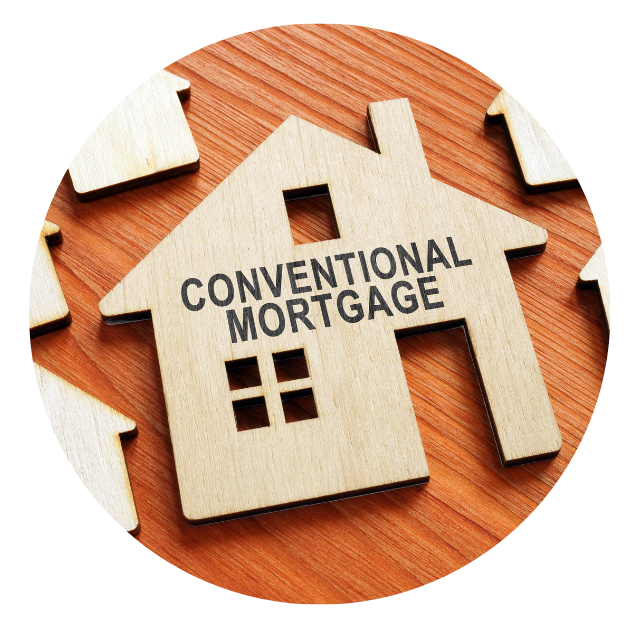
Purpose:
-
Purchase, Purchase and Rehab, Construction
Requirements:
-
Maximum conforming loan limits set by the Federal Housing Finance Authority (FHFA)
Benefits:
- Down payments as low as 3%
- Fixed rate and adjustable rate mortgages available
- Available for 1-4 family property and primary occupancy, secondary occupancy or investment
- Mortgage insurance required only while loan is more than 80% of the home’s value
Allowances:
- Seller contributions and gift money allowed
Sponsor:
-
Fannie Mae; Freddie Mac; private lenders including independent banks, credit unions or other mortgage lenders
Special Conventional Programs Include the following:
#1 Fannie Mae Homestyle Renovation Loan
Purpose:
- Purchase and Rehab
Requirements:
- Maximum conforming loan limits set by the Federal Housing Finance Authority (FHFA)
Benefits:
- Purchase and cost of renovation combined into one loan
- Renovation can be simple refresh (paint and flooring), major repairs or luxury upgrades
- Flexibility of a conventional loan
- Cancellable mortgage insurance
Allowances:
- Seller contributions and gift money allowed
Sponsor:
- Fannie Mae
#2 Fannie Mae HomeReady
Purpose:
- Purchase
Requirements:
- Maximum conforming loan limits set by the Federal Housing Finance Authority (FHFA)
- Homeowner education program
- Income 80% or lower than area’s median income
- Primary Residence
Benefits:
- 3% down payment
- Higher debt-to-income ratios
- Flexible credit eligibility
- Flexibility of a conventional loan
- Cancellable mortgage insurance
Allowances:
- Seller contributions, grants and gift money
- Non-occupant co-borrowers
- Rental property payments considered as income
Sponsor:
- Fannie Mae
#3 Freddie Mac Home Possible
Purpose:
- Purchase
Requirements:
- First time home buyer (at least one borrower)
- Income 80% or lower than area’s median income
Benefits:
- 3% down payment
- Flexibility of a conventional loan
- Cancellable mortgage insurance
Allowances:
- Non-occupant co-borrowers
- Mulitple available down payment sources, including family, employer-assistance, secondary financing and sweat equity
Sponsor:
- Freddie Mac
Multifamily 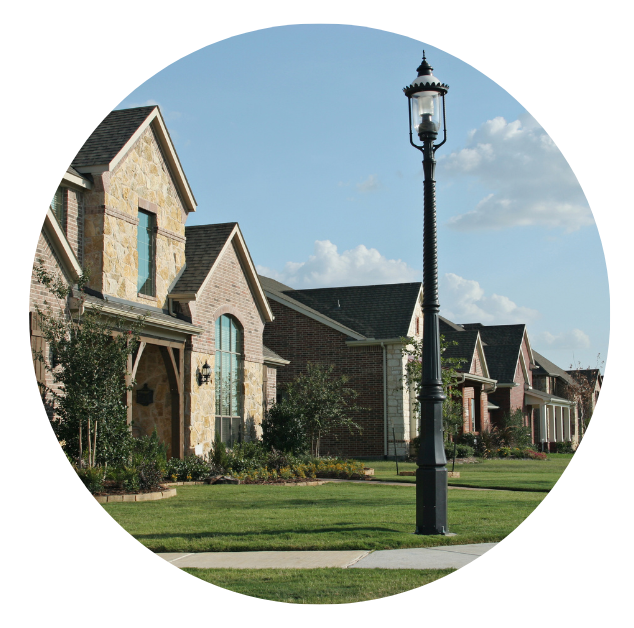
Purpose:
- Purchase or Purchase and Rehab
Requirements:
- Owner occupancy
Benefits:
- 5% down payment for 2- to 4-unit properties
Allowances:
- Program dependent (conventional, HomeReady or HomeStyle Renovation)
Sponsor:
- Fannie Mae
JUMBO Home Loans 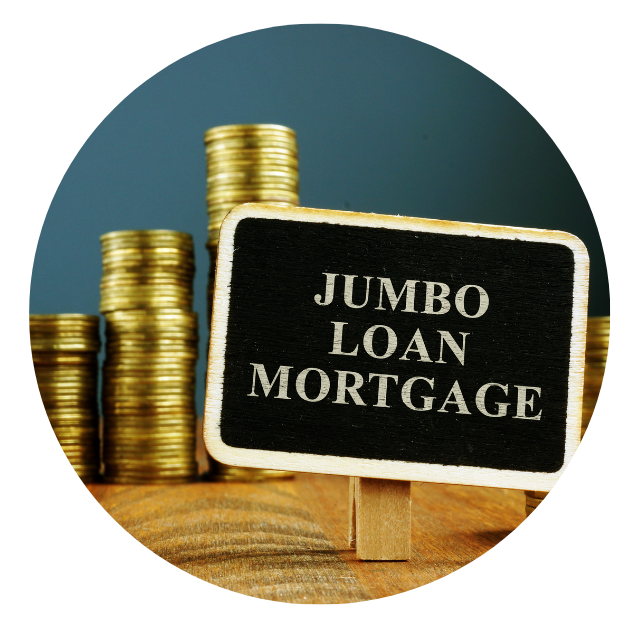
Purpose:
- Purchase, Purchase and Rehab, Construction
Requirements:
- Must fall within allowable loan and down payment amounts
Benefits:
- Loan limits beyond those placed by the government-sponsored agencies
- Down payments as low as 5%, but typically higher with greater loan amounts
- Fixed rate and adjustable rate available
- Any type of residential property and occupancy
- Cancellable mortgage insurance
Allowances:
- Seller contributions and give money allowed
Sponsor:
- Private lenders including independent banks, credit unions or other mortgage lenders
State & Local Loan Programs
Contact us to learn of any state or locally sponsored loan programs for first time buyers.
Bottom Line
We are happy to review your options with you. Let's start a converstaion even if you're months away from your home purchase. It can pay to start early! 888-616-9885




.png)